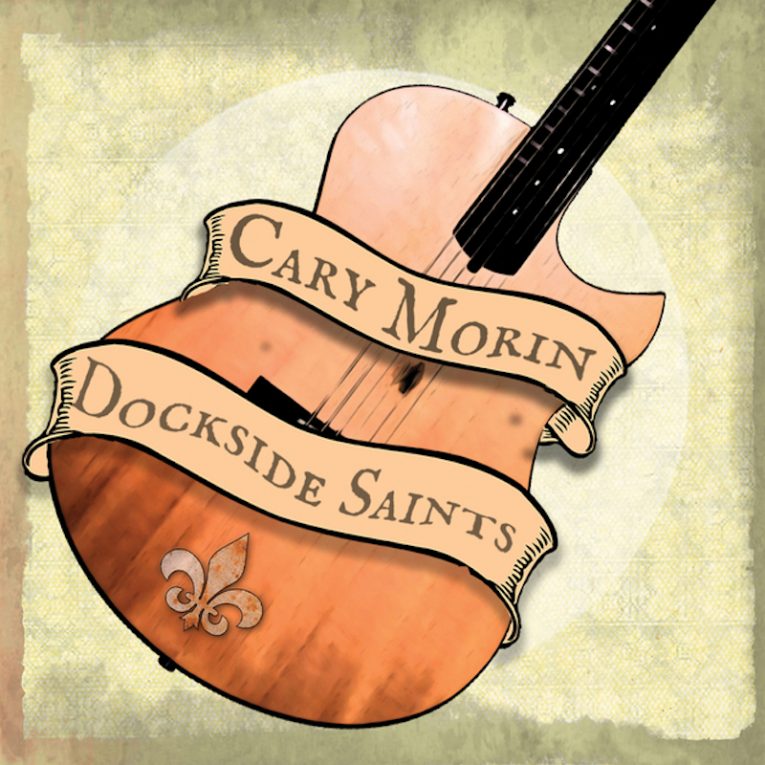
Cary Morin
By Chris Wheatley
Dockside Saints, the new album by the supremely gifted singer-songwriter and guitarist Cary Morin, officially launches August 7th, 2020. Since 2013, Morin has garnered a slew of awards, including ‘Best Blues CD’ at both the Independent Music Awards and the Indigenous Music Awards for his 2017 release, Cradle to the Grave. For the uninitiated, Morin’s sound, built around his peerless finger-style guitar, incorporates Cajun and Zydeco, coloured with a broad palette of contemporary influences and, of course, the blues. Dockside Saints like all Morin’s work, contains more than a little bit of magic.
Produced by the multi Grammy-winning Tony Daigle at the Dockside Studios in Louisiana, Morin and his formidable band, bassist Lee Allen Zeno, drummer Brian Brignac, John Fohl and Keith Blair on guitars, fiddler Beau Thomas, Corey Ledet on accordion, Eric Adcock on keys and Celeste Di Lorio on backing vocals, took a down-home approach to recording. Morin’s plan was to “show up with a dozen songs and turn these guys loose on them.” Dockside Studio seems an ideal fit. Right in the heart of Cajun country, with past clients including Derek Trucks and Junior Wells, the setting clearly leant inspiration to the players.
“Nobody Gotta Know” opens the show, with wild calls and rattling bells, reminiscent of early Rolling Stones’ work, before sliding into a shuffling, shifting, gospel-blues affair, full of tinkling piano, swampy bass and accordion vamps. It’s an eclectic sound, calling on all manner of styles and times. There’s a blistering guitar solo, jazzy swing and honky-tonk keys. Ledet’s accordion provides a light and propulsive edge.
As a songwriter, Morin has the rare ability to combine world-weary wisdom with optimism. In 2018, he won honorable mention at the International Songwriting Competition. His voice is both raw and warm, soulful yet with buoyancy.
“Prisoner” opens with some of the finger-style guitar-work for which Morin has become famous. You’ll find yourself leaning toward the speaker, delighting in the aesthetics. What is incredible, almost unbelievable, is that the sounds here emanate just from one player. “I found a guitar that one of my older brothers had left at home when he went to college,” says Morin, “I picked it up and I could just play it. I don’t know why it was so easy for me.” Would that we all possessed such innate talent. Morin makes his instrument sing, moan and talk, like the great Robert Johnson, it has a personality of its own. On “Prisoner,” behind Morin’s magic, the band kicks up a slow and colourful blues jam.
Shimmering, incandescent guitar, percussion and keys introduce “Tonight,” a delightful, abstract water-colour piece. The playing here is stretched and open. It’s a bold and riveting track, held together by some lovely bass-playing and prominent drums, which allow the other players to test the limits of the band’s elasticity. The fiddle-playing, which features prominently, is simply gorgeous. Indeed, it’s something of a shame that Morin and company don’t explore this territory more often.
On “Bare Trees,” a slow instrumental piece, Morin’s guitar, together with accordion and delicate fiddle, conjure a compelling, heart-wrenching landscape. The intuitive ensemble playing is breath-taking. Morin is too generous a musician to hog center-stage. Plenty of room is given to the other players. The track rolls by like a fading summer evening, full of simple majesty and grandeur.
Cultural cross-pollinations of musical styles almost always bring about fascinating results. It was blues combined with gospel and country which created rock ‘n roll. The incredible diversity in New Orleans gave birth to Creole music, Cajun and Zydeco. Morin, with his ancestry of American and Native American, together with his spiritual connection to all of the above-listed genres, manages to marshal a sound which is as distinctive as it is refreshing.
At times, Dockside Saints is thrilling, galloping with all the edge and danger of an outlaw. Elsewhere, it is languid and deep, irresistible. Morin’s guitar lifts and rolls, humming low and sparkling bright, weaving a spell from plucked strings, which at first appears simple, yet captures the ear with overlaid rhythms, sympathetic melodies and intriguing counterpoints. To say that the band is at their most compelling on the more adventurous tracks is merely a personal preference. Every cut here is more than worthy of your time. Taken as a whole, it is another strong addition to Morin’s already impressive legacy.
Pre-order Dockside Saints
Cary Morin Online

easy listening…excellent…